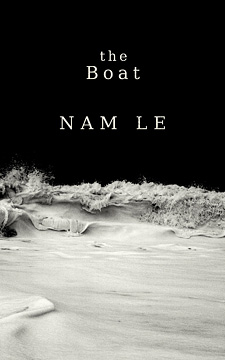 Short story writing is sometimes seen by writers as a way of impressing people before they get the chance to write their first novel. It can often be a mixed collection of material with only one real gem. Enter young Australian writer Nam Le. His collection of stories, The Boat, has sent book reviewers and readers into ecstasies of superlatives: "a revelation", "a bright light in the dim sky of modern short-story writing", a "formidable literary debut", "inventive", "remarkably accomplished", "a blistering talent" and "a disturber of the peace".
Short story writing is sometimes seen by writers as a way of impressing people before they get the chance to write their first novel. It can often be a mixed collection of material with only one real gem. Enter young Australian writer Nam Le. His collection of stories, The Boat, has sent book reviewers and readers into ecstasies of superlatives: "a revelation", "a bright light in the dim sky of modern short-story writing", a "formidable literary debut", "inventive", "remarkably accomplished", "a blistering talent" and "a disturber of the peace".
What a wonderful collection The Boat is, revealing an impressive breadth of imagination and maturity. It is top and tailed with stories close to Nam's heritage. A brutally honest look at the cultural divide, when a father visits his Vietnamese son who is studying writing in the US (Nam won a scholarship to participate in the famous Writers' Workshop in Iowa), and does not appreciate the writing or the choice of career of his son.
The final story is a moving account of the fear and deprivations of refugees fleeing for their lives in the hope of a better life in Australia. Nam and his family escaped from Vietnam by boat in 1979, when he was just three months old.
In between are stories that amaze in their ability to capture a sense of place and culture in contexts as varied as Iran, Japan, Australia and Colombia. He speaks equally convincingly across genders and ages, dealing with the whole spectrum of emotions and relationships: romantic, father-daughter, mother-son, friends…
In Cartegna gangs and drugs make men and corpses of boys, in Meeting Elise a dying father tries to reconnect with his estranged daughter, in Halflead Bay there is a Winton-like coming of age story about a youth in an Australian fishing village, Hiroshima is about a girl living in the days before the bomb, and Tehran Calling is about a young person returning to her homeland to try and make a difference for those who didn't have the privilege of escaping.
Nam was born in Vietnam, raised in Australia and is now fiction editor for the Harvard Review and is living in the US. Perhaps the theme that draws these stories together is the seeking for a "home". Home is not just a place that is familiar, it is tied to a sense of security. In an increasingly global and mobile world, our ideas of neighbourhood and home are changing. Nam agrees that each character in his stories has a sense of being displaced. There is a search for belonging.
In an interview on his website he speaks about identity being tied to "how we articulate what we think of ourselves".
These themes of security, home, identity and belonging, are deep matters of the Gospel. Nam's characters tend to flounder and fail, with occasional glimpses of hope and grace. In the same way each if us, at some stage, has messed up our choices and relationships.
I wonder at the difference it makes to turn to the one who knows us so completely that he can strip away the false self that we articulate to others; who gives us an identity and security and sense of belonging that is not dependent on time and place, and frees us to live / relate with a focus on giving rather than taking.
It is the sign of a good book when you feel so real about the characters and stories that they take you on a journey into yourself.
















